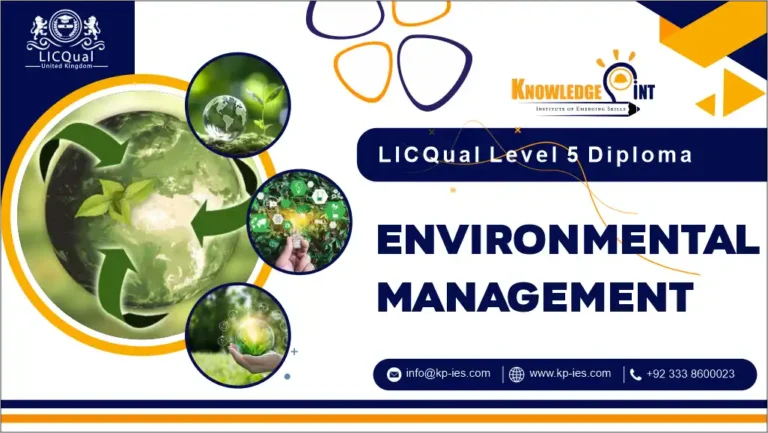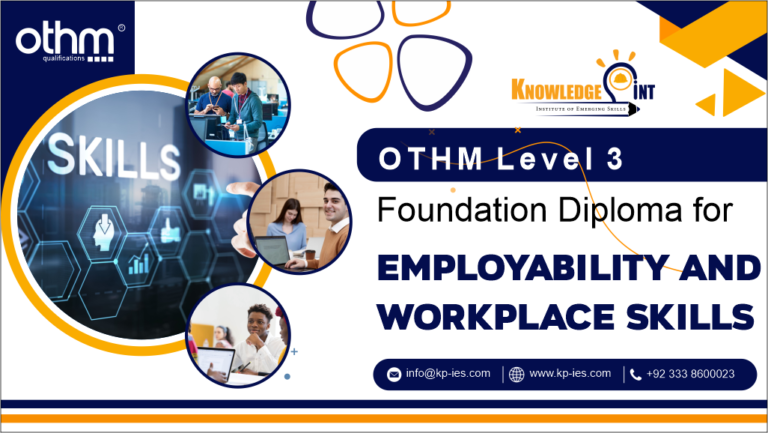Quality control is the cornerstone of ensuring products and services meet rigorous standards of excellence. For professionals seeking to advance their careers and deepen their expertise in quality assurance and control, the QualCert Level 3 Certificate in Quality Control (QC) offers a robust pathway to mastery. This certification program builds upon foundational knowledge, equipping individuals with advanced skills, strategic insights, and industry-relevant competencies necessary to excel in roles that demand precision, compliance, and continuous improvement.
The QualCert Level 3 Certificate in Quality Control (QC) is an esteemed certification designed to provide comprehensive knowledge and practical skills in advanced quality assurance and control practices. It goes beyond basic principles to encompass sophisticated methodologies, tools, and techniques essential for ensuring product/service reliability, customer satisfaction, and organizational success. Whether you’re aiming to enhance your career prospects or transition into a specialized role, this certification prepares you to tackle complex quality challenges and drive operational excellence across diverse industries.
The QualCert Level 3 Certificate in Quality Control (QC) is your gateway to becoming a recognized leader in quality assurance and control. By acquiring advanced skills, mastering industry-relevant methodologies, and earning a respected qualification, you’ll be well-prepared to lead quality improvement initiatives, ensure regulatory compliance, and drive organizational excellence. Embrace the opportunities offered by this certification to advance your career, contribute to organizational success, and make a significant impact in the dynamic field of quality management.
Course Overview
The QualCert Level 3 Certificate in Quality Control consists of 9 mandatory units which are as follows.
The learning outcomes of QualCert Level 3 Certificate in Quality Control include:
Advanced Quality Concepts
- Theory and Application: Demonstrate advanced understanding and application of quality management principles, including Total Quality Management (TQM), Six Sigma, and other quality improvement philosophies.
- Strategic Implementation: Implement advanced quality concepts to enhance organizational processes, reduce defects, and improve overall product/service quality.
- Continuous Improvement: Foster a culture of continuous improvement by applying advanced quality concepts to drive innovation and excellence across organizational functions.
Statistical Methods for Quality Control
- Advanced Statistical Techniques: Apply advanced statistical methods such as regression analysis, Design of Experiments (DOE), and multivariate analysis to analyze quality data and optimize processes.
- Process Optimization: Use statistical methods to identify trends, predict outcomes, and optimize process performance to meet quality objectives.
- Data-Driven Decision Making: Utilize statistical insights to make informed decisions, monitor process stability, and implement corrective actions.
Advanced Problem-Solving Techniques
- Root Cause Analysis: Use advanced problem-solving techniques such as Failure Mode and Effects Analysis (FMEA), 8D problem-solving, and cause-and-effect analysis to identify root causes of quality issues.
- Effective Solutions: Implement robust solutions to address complex quality problems, prevent recurrence, and improve overall process efficiency and effectiveness.
- Cross-Functional Collaboration: Collaborate with cross-functional teams to implement sustainable solutions and drive continuous improvement initiatives.
Quality Standards and Compliance
- Regulatory Knowledge: Understand and interpret complex quality standards, regulations, and industry-specific requirements (e.g., ISO 9001, FDA regulations) to ensure compliance.
- Audit Preparedness: Prepare for and participate in quality audits to assess compliance with standards, identify non-conformities, and implement corrective actions.
- Continuous Compliance Improvement: Implement strategies to continuously monitor, evaluate, and improve compliance with quality standards and regulatory requirements.
Advanced Quality Inspection and Testing
- Advanced Testing Methods: Utilize advanced inspection and testing methods (e.g., non-destructive testing, advanced metrology) to verify product/service quality and reliability.
- Quality Assurance: Implement rigorous quality assurance protocols to detect defects, ensure product/service conformity, and maintain customer satisfaction.
- Risk-Based Inspection: Conduct risk-based inspections to prioritize critical areas and mitigate potential quality risks effectively.
Quality Management Systems (QMS) and Lean Practices
- QMS Development: Design, implement, and optimize Quality Management Systems (QMS) aligned with Lean principles to streamline processes, reduce waste, and improve efficiency.
- Lean Tools and Techniques: Apply Lean methodologies such as Value Stream Mapping (VSM), Kaizen, and 5S to eliminate waste, enhance productivity, and deliver value to customers.
- Continuous Improvement Culture: Foster a Lean culture of continuous improvement, empower teams, and drive sustainable operational excellence through QMS and Lean practices.
Advanced Statistical Analysis in Quality Control
- Complex Data Analysis: Conduct complex statistical analyses (e.g., ANOVA, hypothesis testing) to assess process capability, identify variation sources, and improve overall process performance.
- Quality Control Optimization: Use statistical modeling and simulation techniques to optimize quality control processes, predict outcomes, and achieve desired quality levels.
- Statistical Process Control (SPC): Implement advanced SPC methodologies to monitor process stability, identify trends, and proactively address deviations to maintain quality standards.
Quality Control in Complex Environments
- Complexity Management: Manage quality control challenges in complex environments such as multi-site operations, global supply chains, and diverse regulatory landscapes.
- Adaptability and Resilience: Develop strategies to adapt quality control processes to changing environments, mitigate risks, and maintain consistent quality across diverse operations.
- Integration and Standardization: Standardize quality control practices, integrate quality management systems, and ensure alignment with organizational goals and industry best practices.
Leadership in Quality Control
- Strategic Leadership: Develop leadership skills to lead quality control teams, drive organizational change, and foster a culture of quality excellence.
- Team Management: Effectively manage teams, delegate responsibilities, and inspire collaboration to achieve quality goals and objectives.
- Stakeholder Engagement: Collaborate with internal and external stakeholders to align quality control initiatives with organizational objectives and customer expectations.
These learning outcomes collectively prepare individuals to lead quality control efforts in complex environments, ensuring they have the skills, knowledge, and abilities to drive continuous improvement, uphold quality standards, and contribute to organizational success.
Course Benefits of the QualCert Level 3 Certificate in Quality Control :
1. Specialized Expertise
- Auditing Proficiency: Gain specialized knowledge and skills in auditing energy management systems according to the ISO 50001:2018 standard.
- Industry Recognition: Earn a globally recognized qualification that demonstrates your proficiency as an energy management systems auditor.
2. Career Advancement
- Expanded Career Opportunities: Qualify for roles such as Lead Energy Auditor, Energy Management Consultant, or Compliance Officer.
- Higher Earning Potential: Enhance your value to employers and increase your earning potential with specialized expertise in energy management auditing.
3. Industry-Relevant Skills
- Practical Application: Acquire practical skills and techniques for planning, conducting, and documenting energy management system audits.
- Effective Communication: Develop communication skills to interact with auditees, audit teams, and stakeholders effectively.
4. Contribution to Sustainability
- Promotion of Energy Efficiency: Play a key role in promoting energy efficiency and reducing environmental impact within organizations.
- Support for Sustainable Practices: Assist organizations in implementing and maintaining energy management systems that support sustainability goals.
5. Quality Assurance
- Compliance Assurance: Help organizations achieve compliance with ISO 50001:2018 requirements and other relevant regulatory standards.
- Risk Mitigation: Identify areas of non-conformance and provide recommendations for corrective actions to mitigate risks.
6. Continuous Professional Development
- Lifelong Learning: Engage in continuous professional development by staying updated with the latest developments and trends in energy management auditing.
- Networking Opportunities: Connect with industry professionals, auditors, and experts, expanding your professional network and opportunities.
7. Organizational Benefits
- Improved Performance: Contribute to the improvement of organizational energy performance through effective auditing and recommendations for continuous improvement.
- Enhanced Reputation: Help organizations build a positive reputation for their commitment to energy management and sustainability practices.
8. Personal Growth
- Leadership Development: Develop leadership skills to effectively manage audit teams, delegate tasks, and ensure audit objectives are met.
- Confidence Boost: Gain confidence in your abilities as an energy management systems auditor through practical training and hands-on experience.
The future progression after completing the QualCert Level 3 Certificate in Quality Control (QC) opens up various opportunities for career advancement and professional growth. Here’s a detailed outlook on potential paths:
- Specialized Certifications: Graduates may pursue advanced certifications such as Certified Quality Engineer (CQE), Certified Quality Auditor (CQA), or Six Sigma Black Belt. These certifications deepen expertise in specific areas of quality management, enhancing credibility and opening doors to higher-level roles.
- Higher Education: Some individuals opt to pursue a bachelor’s or master’s degree in quality management, industrial engineering, or related fields. Advanced degrees provide comprehensive knowledge, leadership skills, and research opportunities that are valuable for managerial or academic roles.
- Senior-Level Roles: With the QualCert Level 3 Certificate, professionals are prepared for senior-level positions such as Quality Manager, Quality Assurance Director, or Continuous Improvement Leader. These roles involve overseeing quality programs, driving strategic initiatives, and ensuring organizational compliance with industry standards.
- Consulting and Training: Graduates may choose to work as quality management consultants, offering expertise to organizations seeking to improve their quality control processes. Alternatively, they can become trainers, educating teams on quality management methodologies and best practices.
- Industry Leadership: Some individuals leverage their expertise to contribute to industry standards committees, professional associations, or regulatory bodies. This involvement allows them to influence quality practices on a broader scale and stay at the forefront of industry developments.
- Entrepreneurship: Armed with advanced knowledge and certification, some professionals may start their own quality management consultancy or service firm. This path offers autonomy, the opportunity to tailor services to client needs, and potential for business growth.
- Global Opportunities: The skills and knowledge gained from the QualCert Level 3 Certificate are applicable across industries and geographical boundaries. Graduates can pursue opportunities in multinational corporations or international organizations that prioritize quality control and compliance.
- Continuous Learning: The field of quality management is dynamic, with new technologies, methodologies, and regulatory requirements constantly evolving. Graduates are encouraged to engage in continuous learning through workshops, conferences, and professional development programs to stay updated and maintain their competitive edge.
In conclusion, the QualCert Level 3 Certificate in Quality Control equips professionals with advanced skills, strategic insights, and industry-recognized credentials necessary for leadership roles in quality management. The future progression offers diverse opportunities for career advancement, professional development, and impactful contributions to organizational success and industry standards.







